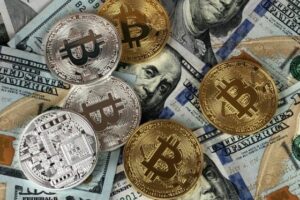There are basically two types of forex brokers that operate: dealing desk (DD) brokers and no dealing desk (NDD) brokers. The difference in these two types of brokers is the manner in which the transactions are executed. Choosing the type of broker is important as, ultimately, this method of broker operation affects the fees charges, the spreads and the quality of service offered.
Dealing Desk (DD) Forex Brokers
The DD forex brokers are otherwise called market makers. This is because they offer fixed spreads. They also provide liquidity to their trading clients. They in fact create a market for their clients, that is, they decide the prices at which the clients’ trading orders are filled. DD brokers always trade on the opposite side of their clients. DD brokers reduce their risk in the market by offering both bid and ask prices at the same time and this turns their investments in both directions in the forex market.
A disadvantage when using this method lies in the fact that some brokers may try to manipulate quotes as traders may not be able to access the quote rates in real time. The traders do not get to view the interbank rates. However, the high competition between the DD brokers is quite high that many of them offer rates that are close enough to the interbank rates.
When a trader places a buy order with a DD broker, the broker first tries to find a matching sell order from its other clients. Otherwise, the broker passes on your order to its liquidity provider that would readily buy the asset. This helps the DD broker to minimize the risk and earn from the spread. If there is no other client willing to buy the order, the DD broker takes the opposite side and executes the trade.
No Dealing Desk (NDD) Forex Brokers
In this case, the forex broker does not work through a dealing desk, that is, there is no requote of the prices. Their job is to simply connect two trading parties together. The NDD brokers get their liquidity from the major forex quote providers. These quote providers give their best quotes to the NDD forex broker. The broker fills the orders for its clients. The NDD forex broker earns by charging a commission for the transactions or offer a wider spread to make a small profit on every trade that is executed. Sometimes these brokers make use of both methods to earn money.
A major advantage of using NDD brokers is that there is conflicting interest with the client or trader. The trader can execute trades without any restrictions after economic announcements. NDD brokers can be either ECN (Electronic Communications Network) or STP (Straight Through Processing) or sometimes both. The spreads offered by NDD brokers are lower like on site Scalpingforexbrokers. However, the spreads are not fixed and designed to increase when the market turns volatile.
Straight Through Processing (STP)
When a broker functions in the STP mode, all the transactions are completely computerized. The transactions are executed straight away without any intervention from the broker. The clients are connected directly to the liquidity providers with access to the interbank market. STP (NDD) brokers generally have access to multiple liquidity providers. Each liquidity provider generally quote their own bid and ask price. If there are multiple liquidity providers the system displays as many pairs of bid and ask quotes. The system is designed to sort the bid and ask quotes from the best to the rest.
Electronic Communications Network (ECN)
ECN display all the prices quoted by the members of the interbank market. This information is real and therefore transparent to all the trader participants. There would be no manipulation in the rates. ECN brokers make money on the basis of the currency volume that is traded. ECN brokers allow all their clients to interact with others. The other participants could be traders, banks, or even other forex brokers. The participants trade against one another by offering their own bid and ask prices.
In addition to all of these there are multilateral trading facilities that operate in a manner similar to exchanges, with the same rules. That is, buyers and sellers of different financial instruments execute trades through these facilities. However, these entities are not regulated like formal exchanges. Such trading facilities offer a higher speed of execution and lower transaction fees.
This is a guest post by Andri Yanto.


